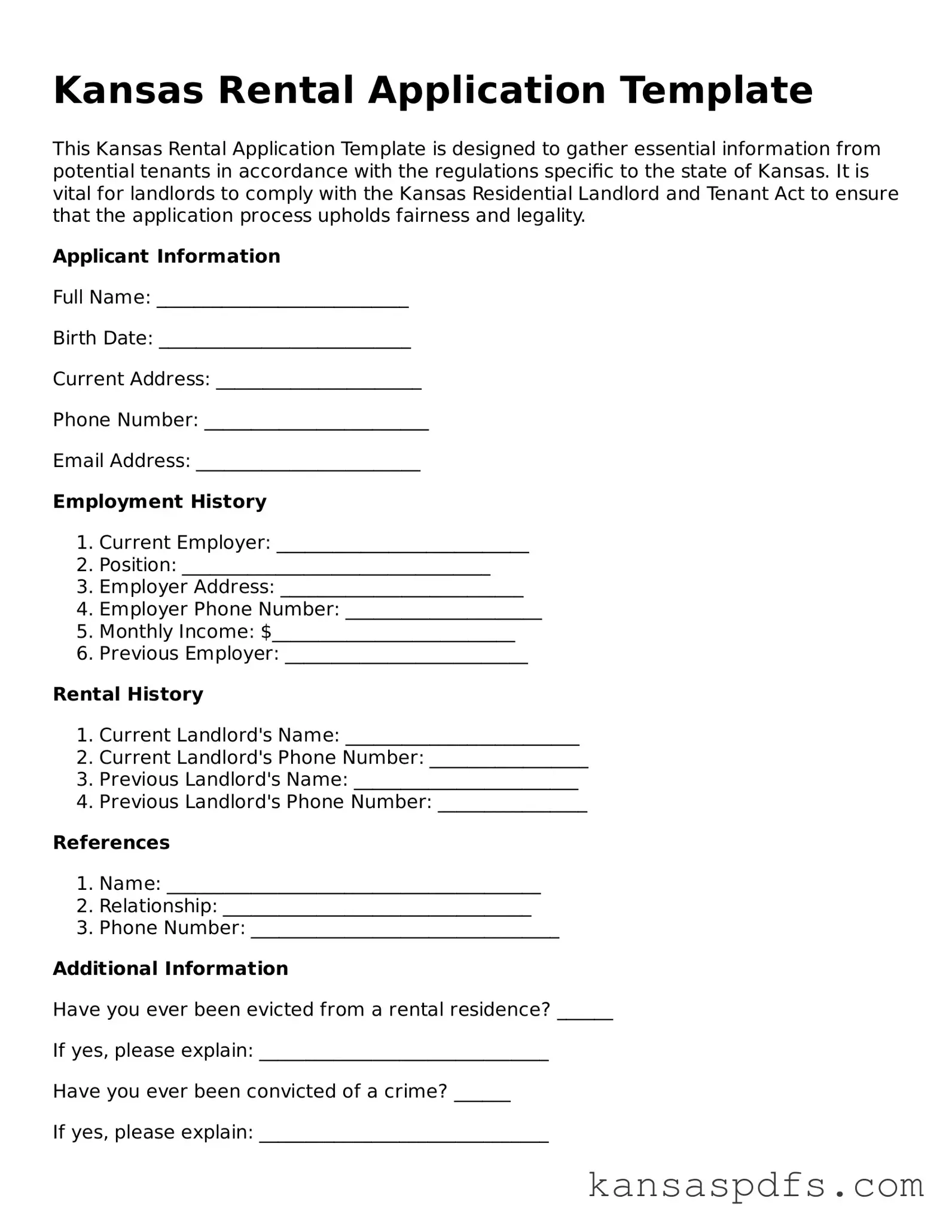Blank Kansas Rental Application Document
The Kansas Rental Application form serves as a standardized document allowing landlords to gather essential information from potential tenants to help in making an informed leasing decision. By collecting details on rental history, employment, and financial stability, this form streamulates the tenant screening process. To ensure you're one step closer to securing your new home, fill out the Kansas Rental Application form by clicking the button below.
Get My Form Now

Blank Kansas Rental Application Document
Get My Form Now

Get My Form Now
or
Free PDF
Finish this form without wasting time
Finish your Rental Application online with quick edits and instant download.